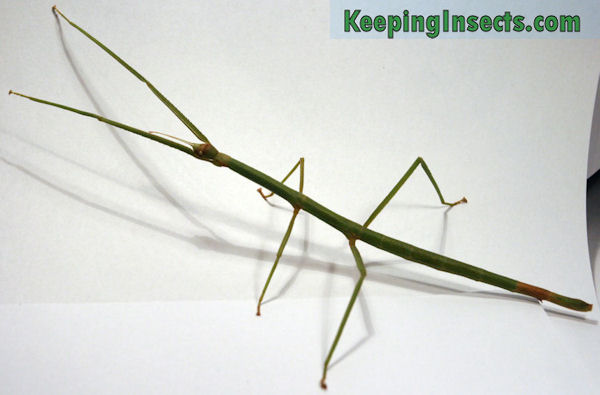Just a few benefits of stick insects for kids include.
Children s stick insect care.
Stick insects can represent an ideal first pet for children on account of their ease of care.
Once the stick insects hatch you can return them to the main cage.
Therefore you have to be sure to feed the correct species of plant to your stick insects because they will starve when fed the wrong kind.
Stick insects eat leaves but they do not eat all types of plants.
Make sure you provide plenty of leaves as soon as the eggs hatch.
The children s stick insect tropidoderus childrenii is a stick insect from south eastern australia.
Stick insects do not have a larval stage so they will emerge as full bodied insects.
However indian stick insects are the most commonly kept as pets.
There are over 2 500 species of stick and leaf insects.
Your stick insect can drown so it is best to have a lid on the container and have small holes for the branches to be put through.
Stick insects require the utmost care when handling but they can be very tame and sit on your hand.
Using a special muscle to break it off at a weak joint the imperiled insect simply sheds the leg in a defensive strategy is known as autotomy.
Should a bird or other predator grab hold of its leg a stick insect can still make an easy escape.
Support the channel on patreon so we can rescue more animals in need.
Camouflage is one of the primary protection techniques used by children s stick insects as they often have the appearance of leaves.
Children s stick insects range from green red brown cream pink and purple in colour depending on the gender and the age of the insect and wings are typically a faint yellow to green.
Stick insects can regenerate limbs.
Make sure you care for baby stick insects properly.
Small braches with fresh clean leaves should be placed in your enclosure in a container of water.
Feeding diet stick insect eat any types of eucalypt gum leaves and acadia wattle species.
Every species has one or more plants which they eat while they will refuse to eat other leaves.
Both females and males grow up to 11 cm adult females are usually pale green and are too heavy to fly adult males are slender and light brown and do fly they feed on eucalypts gum leaves and require an enclosure of minimum size 35 cm tall x 30cm x 35cm and room temperature of 16 to 28.
They don t require daily maintenance and can be left alone for a week without any care.
This species feeds and blend in well on eucalypt leaves.
The eggs are elongated tan capsule like and young are bright green to whitish green.

